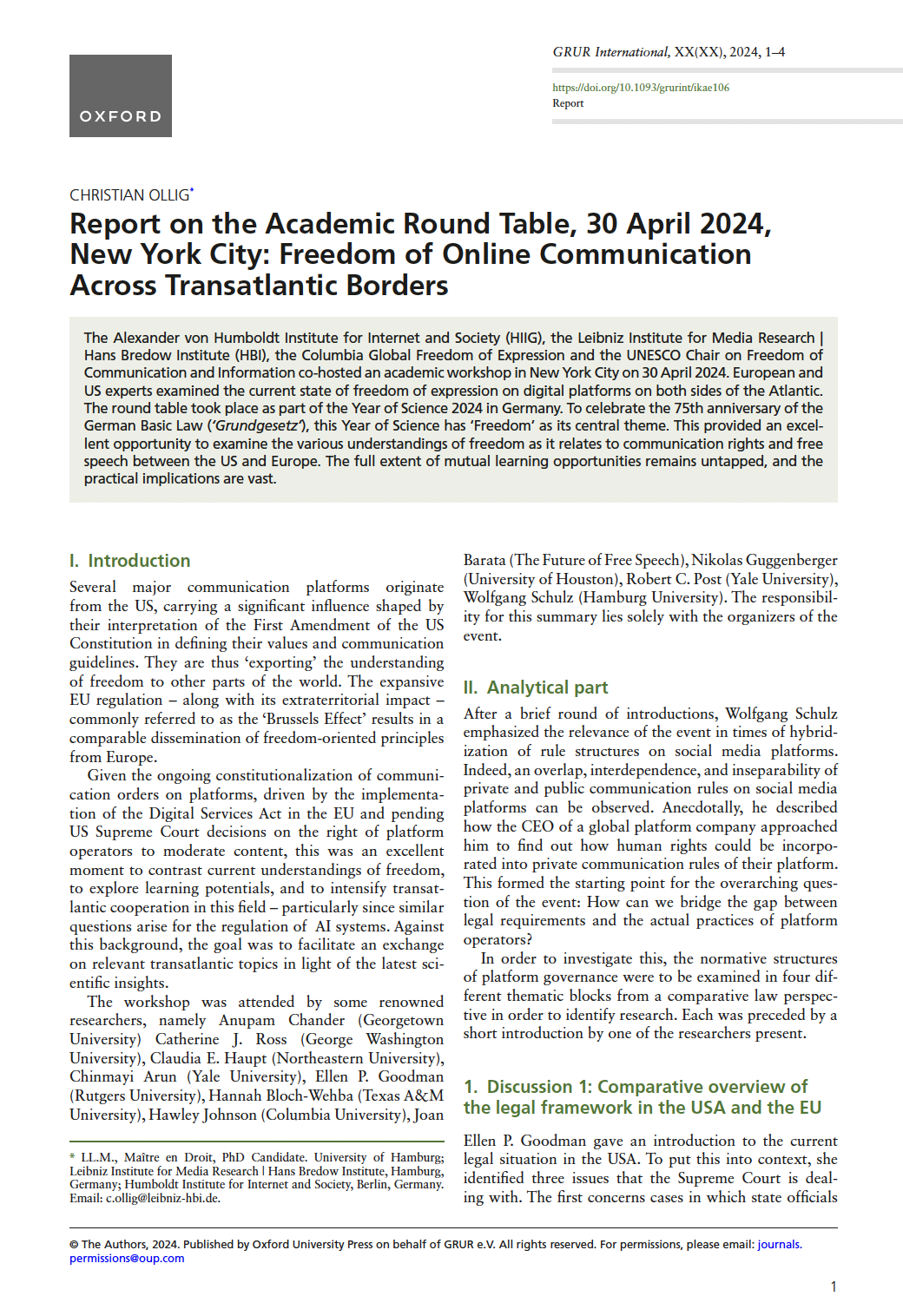On April 30, 2024, the Alexander von Humboldt Institute for Internet and Society (HIIG), the Leibniz Institute for Media Research | Hans-Bredow-Institut (HBI), CGFoE, and the UNESCO Chair on Freedom of Communication and Information co-hosted an academic workshop Examining Freedom of Online Communication Across Transatlantic Borders, during which experts from the US and Europe discussed the current state of freedom of expression on digital platforms on both sides of the Atlantic. Christian Ollig prepared a report on the round table.

The workshop participants were:
- Anupam Chander of Georgetown University
- Catherine J. Ross of George Washington University
- Claudia E. Haupt of Northeastern University
- Chinmayi Arun of Yale University, Ellen P. Goodman of Rutgers University
- Hannah Bloch-Wehba of Texas A&M University
- Hawley Johnson of Columbia University
- Joan Barata of The Future of Free Speech
- Nikolas Guggenberger of University of Houston
- Robert C. Post of Yale University
- Wolfgang Schulz of Hamburg University.
In four thematic discussion blocks, the speakers reviewed and compared the legal frameworks in the US and the EU (including Sec. 230 of the Communications Decency Act, the Digital Services Act, the Digital Markets Act, the General Data Protection Regulation, and the Artificial Intelligence Act), discussed the “horizontal effect” of fundamental rights on platforms and the “state action doctrine,” examined the “hybrid legal thinking” and its risks, and, lastly, focused on TikTok and “constitutionalizing of the internet.”
Ollig, Christian. “Report on the Academic Round Table, 30 April 2024, New York City: Freedom of Online Communication Across Transatlantic Borders.” GRUR International, XX(XX), 2024, 1–4. https://doi.org/10.1093/grurint/ikae106.

